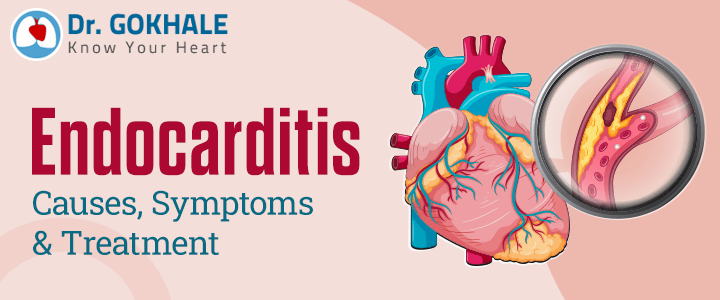When we think about heart diseases, our minds often jump to heart attacks or hypertension. But there’s another serious condition that needs our attention—Endocarditis. This rare but potentially life-threatening illness affects the inner lining of your heart chambers and valves, called the endocardium.
Let’s explore what endocarditis is all about, from its causes and symptoms to the treatment options available, especially if you’re considering a heart transplant in Hyderabad or anywhere else in India.
What Causes Endocarditis?
Endocarditis typically arises when bacteria or other germs from different body parts, such as your mouth, enter your bloodstream and settle on damaged areas of your heart. While your body is typically good at fighting these germs, certain factors can increase your risk of developing endocarditis. For instance, individuals with damaged or artificial heart valves are more susceptible to infections.
Additionally, those born with congenital heart defects or who have undergone previous heart surgery face a high risk. Also, using unsterile needles for intravenous (IV) drug use can introduce bacteria directly into the bloodstream, further raising the likelihood of endocarditis. Understanding the causes of endocarditis is crucial to managing and preventing this condition.
Recognizing the Symptoms of Endocarditis
Identifying Endocarditis symptoms can be challenging, as they may be mistaken for other illnesses. Common signs include persistent fever, often accompanied by chills and unusual fatigue or weakness that doesn’t improve with rest. Shortness of breath, especially during physical exertion, heart murmurs or unusual sounds during a heartbeat, and noticeable swelling in the legs, abdomen, or other body parts are also indicators of this condition.
If you experience these symptoms or have existing heart conditions, it’s crucial to consult a healthcare professional promptly. Early identification of endocarditis symptoms can significantly improve treatment outcomes.
Endocarditis Treatment: What Are Your Options?
Endocarditis treatment varies based on its severity and underlying causes. The condition is often treated with strong IV antibiotics, which may take several weeks. If the infection has significantly damaged your heart valves, surgical treatment may be necessary to repair or replace the affected valves. In extreme cases where the heart is severely damaged, a heart transplant might be considered.
Preventing Endocarditis: Tips to Keep Your Heart Healthy
Preventing endocarditis involves several practical measures. Maintaining good oral hygiene is essential, as bacteria from the mouth can enter the bloodstream. Regular brushing and flossing are crucial. If you have a heart condition or a history of surgery, regular check-ups are a must to protect your heart health. Additionally, avoiding intravenous (IV) drug use can significantly reduce the risk of endocarditis.
Conclusion
Endocarditis is a serious condition, but it can be managed effectively with early detection and the proper treatment. Whether through antibiotics, surgery, or even a heart transplant, there are various options to restore health and enhance the quality of life.
Facing endocarditis can feel overwhelming, but you don’t have to go through it alone. Dr. Gokhale in Hyderabad is here to provide the compassionate care and expert treatment you need. From personalized endocarditis treatment plans to advanced heart transplantation options, he’s dedicated to helping you on your path to recovery.
Ready to take the next step in your heart health journey? Reach out to Dr. Gokhale today to explore how his expertise in heart transplantation and endocarditis treatment in India can help you get back to living your best life.
 Ask Doctor
Ask Doctor
